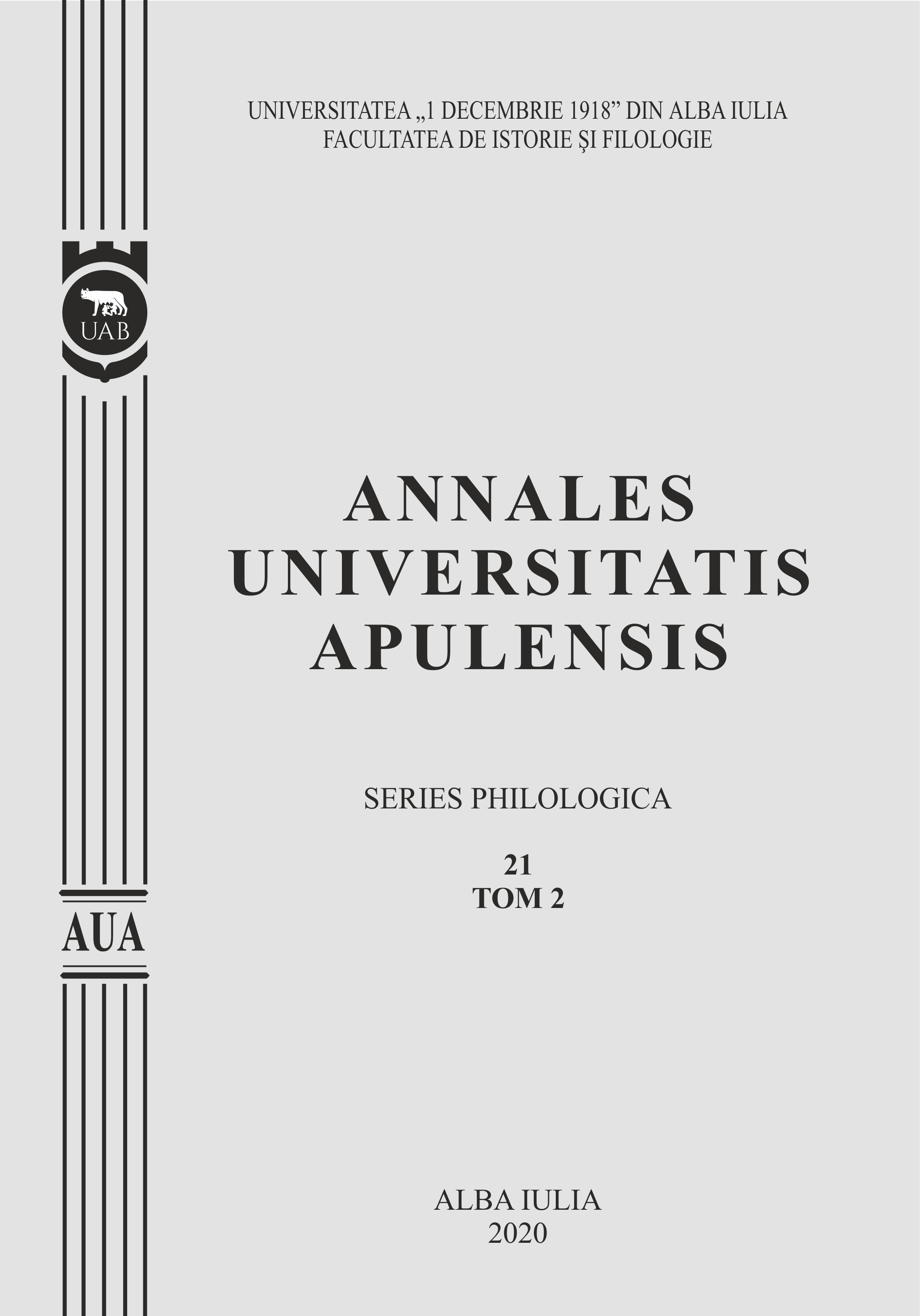STRUCTURA FRAZEOLOGISMELOR AVÂND DREPT COMPONENTĂ CONCEPTUL DE BAN DIN CIOCOII VECHI ȘI NOI DE NICOLAE FILIMON
The Structuring of Phraseologies having as its Component the Concept of Money in Ciocoii vechi și noi by Nicolae Filimon
Author(s): Andreea Brigitte Baștea (Godan)Subject(s): Language studies, Language and Literature Studies, Philology, Phraseology
Published by: Universitatea »1 Decembrie 1918« Alba Iulia
Keywords: Romanian money; the structuring of phraseologies having as component the concept of money; foreign currency; 19th century Romanian novel; linguistic analysis;
Summary/Abstract: This paper aims to analyze the relationship between language and culture in the context of the Romanian literature from the 19th century. We study the phraseologies that concern lexical fields approaching money in Ciocoii vechi și noi [Old and new upstarts] novel by Nicolae Filimon, a well-known Romanian novel from the 19th century. Tthe researched phraseologies mentioned here may be considered as approaches of culture and language furthermore transposed into social mentality. Within the phraseological structure, we divided the phraseologies that have as component the concept of money into 15 groups. The biggest source domain for phraseologies that have MONEY in the foreground, is the category “To steal, to rob, to deceive”. Eight structures of phraseologies are frequently referring to: achieving a social status, making a profit or dealing with profitable business, bribing someone, corruption and corrupt servants and functionaries, money for daily expenses, savings, stealing little by little from the merchandise, theft under complicity, and these can be the most important source areas to define the meaning of money in the analysed novel . While the other 7 more phraseological structures are used in other specific social contexts with a lower frequency of use: deceiving, even torturing in order to get money from somebody, winning money from others during the card game, smart defrauding in order to get rich or stealing little from the small amount of money and a lot from a huge amount of money; a well-endowed royal army; monetary account; paying off a debt; not to be fooled by someone or “par pari refertur”( lat.) Therefore, we can notice that phraseological units need more attention for the correct acquisition in terms of form and meaning, because they are an important means of enriching and beautifying expression. By analysing this novel, Ciocoii vechi şi noi, we managed to prove that the literature of the 19th century is an important one for the Romanian literature, both from a lexical point of view, and a semantic and etymological point of view. The archaic language used in Romanian, the words with influences from other languages regarding the lexeme ban, prove once again that the Romanian novels of this period enrich the Romanian language, and that this fact must be highlighted at any cost, in order to be able to underline the fact that the literature of the 19th century had a special contribution in the history of Romanian literature, in which Ciocoii vechi şi noi is a reference novel for the subject of the our doctoral thesis - denominations of money present in the Romanian novels of the 19th century .
Journal: Annales Universitatis Apulensis. Series Philologica
- Issue Year: 22/2021
- Issue No: 2
- Page Range: 339-350
- Page Count: 12
- Language: Romanian

